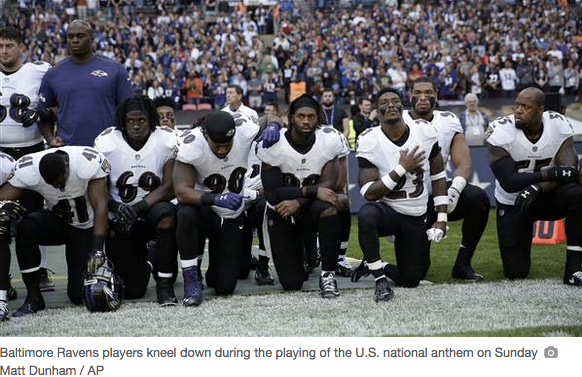It began as a crowd-pleasing tirade from President Trump to an overwhelmingly white, conservative crowd in Alabama. But even before dozens of N.F.L. players knelt in silent protest on Sunday, Mr. Trump’s remarks had spiraled into a national uproar over race, patriotism and free speech, with an unpredictable political trajectory.
It is not yet clear whether most Americans are likely to sympathize with Mr. Trump, and his caustic scolding of the athletes, overwhelmingly black, who engage in certain forms of dissent, or with players who have pushed back against Mr. Trump and called his criticism inappropriate and demeaning.
But by savaging individual athletes — including Colin Kaepernick, the former quarterback of the San Francisco 49ers, and Stephen Curry of the Golden State Warriors — and calling for the firing of those who bring protest onto the field, Mr. Trump created a larger moment of choosing sides that brought sports uncomfortably and unavoidably into the nation’s political divide.
Little more than a month after the furor around Mr. Trump’s reaction to a white supremacist march in Virginia, the president has set off, deliberately or not, a new debate on race and protest, one far blunter and less sanitized than the earnest conversations sometimes moderated by television hosts, or the unity-exalting speeches favored by mainstream politicians.




